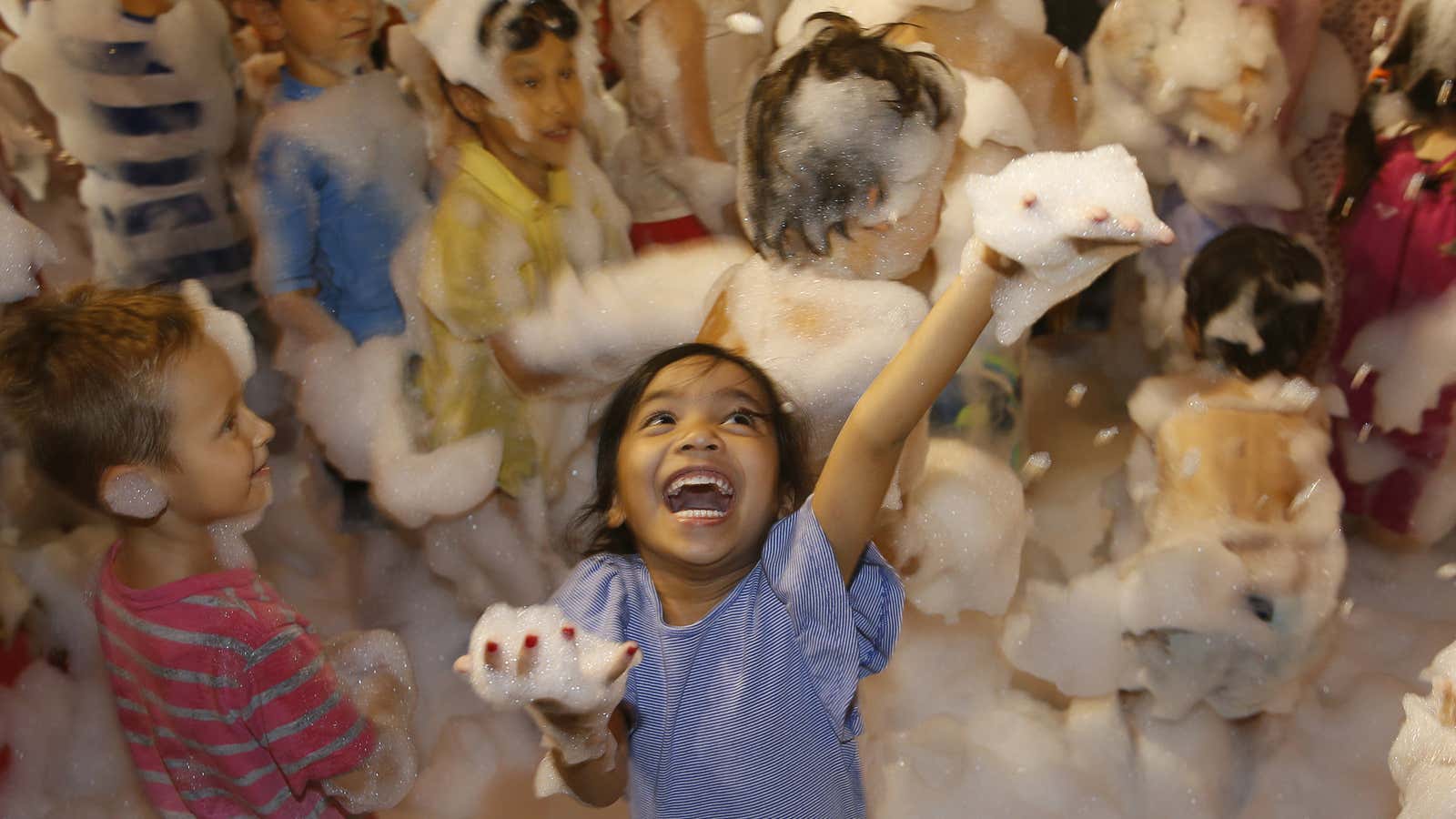Common sense suggests that being too critical or overbearing is not a great way to parent. Now science can back that up.
In a five-year study of primary school children in Singapore, researchers found that children with controlling parents are more likely to be overly critical of themselves, a problem that increases with age. Being too hard on themselves also had long-term consequences: Children with high or rising levels of self-criticalness reported more symptoms of depression or anxiety.
“We found that parental intrusiveness was one of the major factors that predicted increased self-criticalness in children over the years,” said Ryan Hong, the lead researcher on the study and an assistant professor at the National University of Singapore.
There are two kinds of perfectionism: good perfectionism, is “someone who is striving for excellence” says Hong, someone who puts in the effort and tries their best. Bad perfectionism, or “maladaptive perfectionism,” is when one is overly self-critical, and becomes “concerned with how other people might see you and how you see yourself,” he explains.
Hong and his colleagues set out to understand what predicts maladaptive perfectionism in younger children. Is it temperament, or the personality of the child? Socioeconomic status? Parenting behavior? Then they examined what makes it increase or decrease over time.
The research was done from 2010 to 2014, with more than 300 primary-age kids in Singapore, a country known for its highly-demanding parents, Hong said. The children came from 10 primary schools and were aged 7-10. One parent—whichever was considered more involved in the child’s life—was also part of the study.
In the first stage of the research, to determine how controlling parents were, the child was asked to solve a timed puzzle, and the parent could help as much or as little as they wanted. Subsequent assessments were carried out at ages 8, 9, and 11, with parents, teachers and children all submitting various reports, which researchers used to determine how self-critical the children were.
Kids with highly intrusive parents were much more likely to start out self-critical and become even more so, Hong said. And there were some disturbing caveats: Hong said that even the kids who started out highly self-critical but became less so still had high levels of depression and anxiety. These kids showed more evidence of defiant behavior, which Hong said could be associated with “negative parenting” or harsh punishment as they performed below expected standards.
“When parents become intrusive in their children’s lives, it may signal to the children that what they do is never good enough,” he said in a statement released with the report. “As a result, the child may become afraid of making the slightest mistake and will blame himself or herself for not being ‘perfect.’”
His advice? When your kid comes home with a 90% on a test, do not say “what did you get wrong?” but rather, “what a great result!” Mistakes are how we learn, and encouraging kids to make them, especially when they live in high-expectation environments, is critical.
This jibes with a lot of research showing that parents need to let their kids fail. When parents resolve their kids’ disputes on the playground or interfere in the classroom, the kids miss out on critical opportunities to problem-solve, even if that process involves messing up and trying again. Without those skills, they can become more anxious, dependent, and depressed.
“We all want the best for our kids,” Hong said. “We can have some expectations, but manage them, don’t have unrealistically high expectations.”
